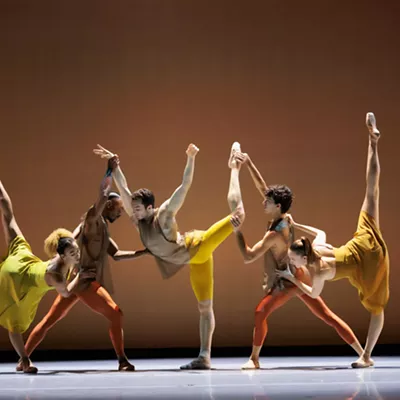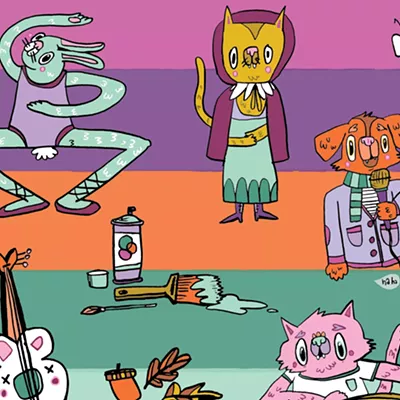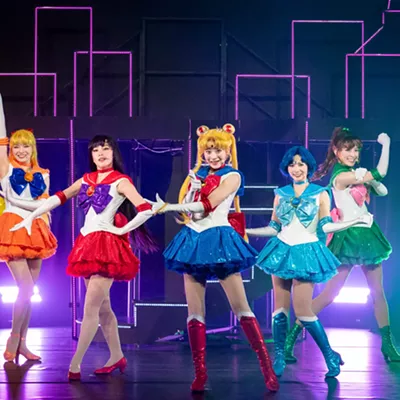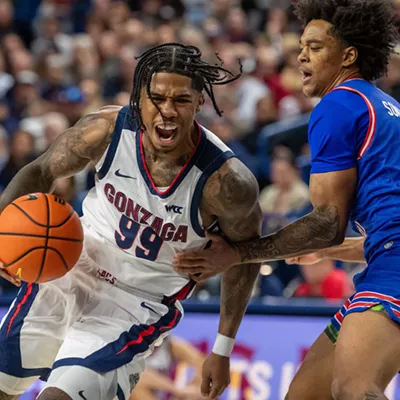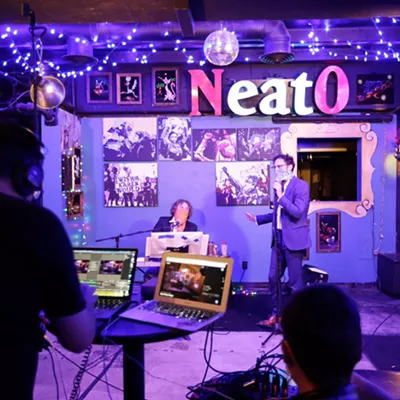For the first 70 days of Major League Baseball's recent free agent signing period, if you'd bought a Mariners hat for $20, you would've spent more money on Seattle's baseball team than its owners shelled out in guaranteed major league contracts.
In the end, the Mariners signed a grand total of one (1!) free agent from outside the organization this year to a big league deal — inking a one-year, $3.5 million contract with 37-year-old replacement-level infielder Donovan Solano.
That's it.
Despite having baseball's best pitching staff and young stars like Julio Rodriguez and Cal Raleigh on incredibly team-friendly contracts, the Mariners head into MLB's opening day on March 27 as a franchise that refuses to make even modest investments toward making the team a serious contender.
Fans might bemoan the Los Angeles Dodgers seemingly outspending the rest of Major League Baseball in attempts to build a superteam, but they are fully operating within the rules of Major League Baseball's open market. All their fellow owners are also billionaires who normally love espousing the virtues of free market capitalism, but in this case the vast majority of them have decided not to invest in their teams because they'd rather live like leeches off the welfare system that is MLB's revenue sharing model. It's meant to help small market teams compete, but has instead bred uncompetitive complacency because it doesn't force teams like the Mariners to actually try to spend to improve their team.
In 2016, the last year the team was owned by Nintendo, the Mariners' team salary was over $142 million. Almost a decade later under John Stanton's penny-pinching ownership group, it's under $138 million heading into the 2025 season.
For comparison, with an estimated $308 million team salary, the Dodgers' 2025 luxury tax bill — the money they have to pay into the collective pot for spending too much money on salary — will be around $137.8 million. The Dodgers are paying as much in MLB rules taxes as the Mariners are paying on their team. Pathetic.
Even the players are offended by the Mariners' approach. After being part of the team in 2024, veteran infielder Justin Turner — who won a World Series with the Dodgers in 2020 — wanted to resign from the Mariners. But Turner ended up signing with the Cubs, in part because the Mariners were acting like an unserious poverty franchise with no intent for winning games.
"The fact that they missed the playoffs by one game, and didn't go out and add an impact bat or two when you have the best pitching staff in baseball just seems absurd to me," Turner told USA Today. "Honestly, as much as I wanted to be back there, if I was the only piece they brought back in, I would be saying the same thing: 'What the hell are we doing? Are you trying?'
If given a real choice, not many rational adults would become Mariners fans at this point, so beware of indoctrinating that disappointment.
"I told them several times this offseason, you have a unicorn of a pitching staff," Turner continued to USA Today. "This might be the best five starting pitchers in the history of the game... There's never going to be a better time in the history of that franchise to have added a couple of bats to make a run than this year, and they missed it."
Stanton and Co. have firmly told fans through his team's actions that this organization is only concerned with lazily making a profit on revenue sharing and ticket sales. Until that changes, there's no reason to support this franchise. If greed is going to ruin the product that brings joy to so many baseball fans in the Northwest, it's time for folks to make Stanton and Co. miserable too. If money is all they care about, stop giving them any. I'm at the point where it's time to boycott the Mariners.
This isn't a call for folks to abandon their fandom, just don't spend any more time and money than ownership does on the team. Hold off on buying that new hat or jersey. Take the money you might spend on a trip to T-Mobile Park and use it for other summer adventures and activities. Spend the hours you might normally spend poring over trade deadline moves and fretting over division standings and instead dive into other national pastime rabbit holes by watching documentary series like Ken Burns' Baseball and Jon Bois and Alex Rubenstein's The History of the Seattle Mariners or reading or great books on the sport like The Glory of Their Times, Moneyball and The Only Rule Is It Has to Work. Going from a day-in-day-out baseball fan to one who only occasionally dips in for games really underscores how casual caring frees up so much time in the summer.
Obviously if you happen to have a baseball-obsessed kid, things might be more difficult. I'm not saying throw your body in front of them to prevent them from watching Julio Rodriguez and Co., because it's not the players' fault that the team doesn't spend and the M's will likely be fringe Wild Card contenders based on their pitching alone.
But also be mindful of preventing a child from decades of misery under miserly ownership. If given a real choice, not many rational adults would become Mariners fans at this point, so beware of indoctrinating that disappointment. With the money saved from not taking the fam to see the M's in person, one could hit up multiple minor league games or save up for new gloves and bats for any aspiring sluggers.
When someone tells you who they are, believe them. The Mariners have declared time and time again that they are cheap. They're billionaire welfare leeches with no passion for the game. Don't reward them for that. ♦





